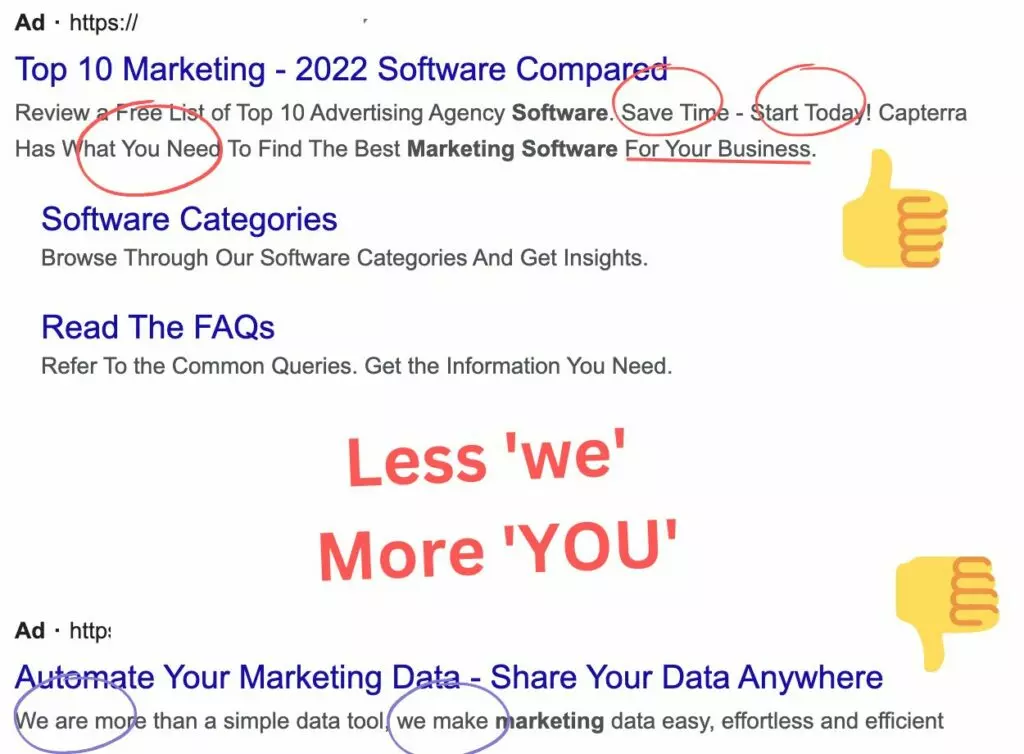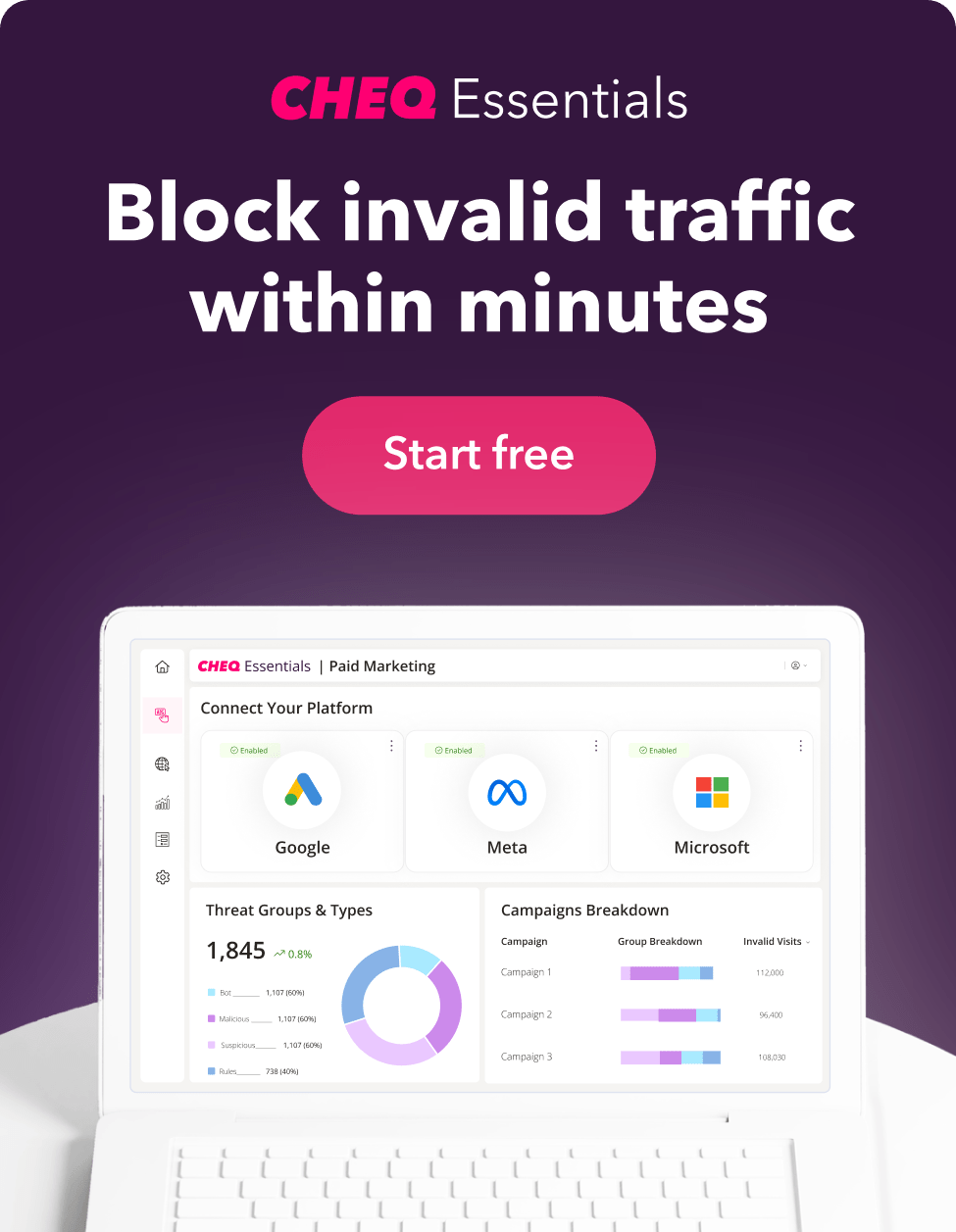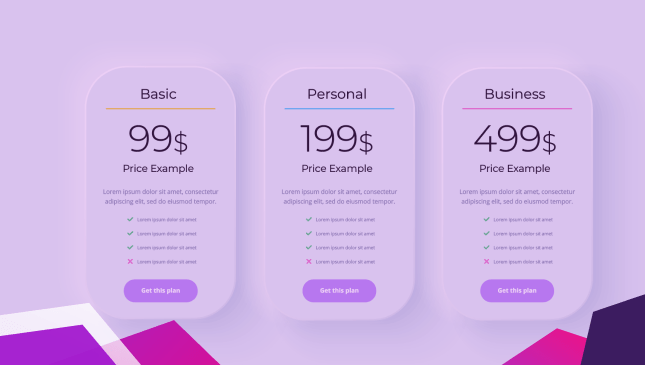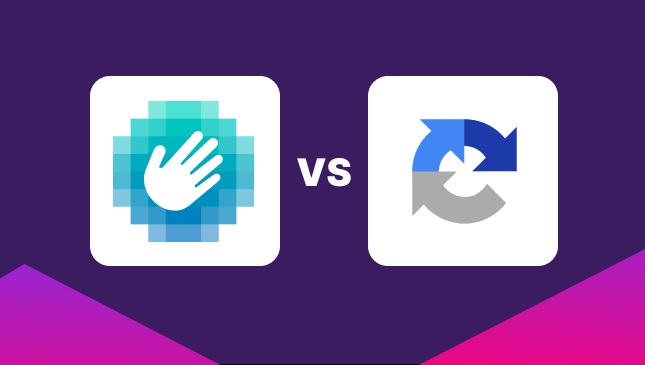6 ways to lower your CPC in Google Ads
Oli Lynch
|Marketing | August 16, 2022

Whatever you’re spending on Google Ads, I’ll bet that you’d like to get your CPC (cost per click) lower. With a lower CPC, you stand to reduce your cost per acquisition (CPA), get more traffic for your money and maybe even have some marketing budget left over for one of those basketball hoops over the waste bin.
Getting your CPC lower in Google Ads isn’t actually too difficult, and just a few simple marketing hacks can save you a percentage of your ad funds.
One thing we recommend is that before you look at how to reduce your CPC, you should also run a PPC audit to identify issues that can be fixed. This will allow you to get more of an overview of your Google Ads campaigns general performance so you’re not just changing things blindly.
What does lower CPC mean?
With each click on Google search ads costing you money, a lower CPC means that your ad budget goes further and, hopefully, you get more conversions too. By optimizing your ad campaigns properly you can get much more traffic for your money and see your ad rank improve too.
So what steps can you take to get a lower CPC on your Google Ads campaign?
1. Bid lower on keywords
The obsession with being numero uno on the SERPs drives most marketers into a battle of keyword bidding. When it comes to your paid search, lowering your cost per click might drop you a place or two on the listings, but would it necessarily impact your conversions or traffic?
In fact, although the first spot does get more clicks (around 50% more in fact), does being number one in paid make a big difference to your sales?
The jury is out on this. And, like many factors in pay-per-click (PPC) marketing, it can also depend on your industry, product, USP, ad copy, and a multitude of other factors.
More clicks don’t always equate to more paying customers. In fact, when it comes to e-commerce or retail, it can equate to more window shoppers being lazy and clicking your result because it’s first.
If you’re offering a high-value service, let’s say legal support, for example, your audience is more likely to read your ad carefully to make sure you are what they’re looking for.
TL;DR?
You can probably afford to lower CPC bids on (many of) your keywords and see what happens if you miss out on the top spot.
Play with lowering your bids by a few cents at a time and see if it makes a difference to:
- Your traffic
- Your actual conversions, and of course…
- Your bottom line
Another reason to lower your keyword bids?
By reducing your CPC you’ll be able to extend the life of your daily or weekly budget, therefore potentially displaying your ads when others have run out of marketing juice.
2. Really work on your ad content
In many of our articles about optimizing your Google Ads content, we often mention copy. And, that is because IT IS CRUCIAL. With paid search ads, the copy is everything.
And even with display ads or video ads, a well-written copy can encourage more clicks once those sharp images of yours have got people’s attention.
So, if you’re going to lower your keyword bids, from our first step, make sure to work on your copy in tandem with this step.
Look at your competitors’ ad copy and work out how you can top that. Understand how your ad messaging speaks to your target audience, and avoid talking about ‘us’ and more about ‘you’.

Some tips to get more clicks on your ads for a lower CPC:
- Say more with less. Cut out unnecessary information and think of ways to use single words in place of chunks of content
- Use those ad extensions – they really can make a big difference
- Play around with your call to action (CTA) – and draw those clicks with a really tempting proposition
- Search for products and services in other industries and get more of an idea of what good written content looks like
- Understand the persuasive language and, in particular, how power words and customer-centric language (you, NOT us) can bring more clicks
- Hire a professional copywriter. It’s their job to make those words count and if they do it right, they’ll make you back their fee in a day or two…
Check out our expert advice on creating copy for PPC ads.
3. Pay attention to your quality score
The quality score on your Google Ads impacts the price you pay per click. So, by optimizing your ads for a higher quality score, you’ll see the added benefit of lowering your CPC.
This is more of a long-game strategy, rather than a quick-fix marketing hack. But understanding how the quality score affects your CPC will help you in the long run.
It’s made a little more complicated by the fact that the QS can be applied individually to each keyword, ad, and campaign.
Whatever it applies to, the quality score measures how relevant your ads are to the searcher, by measuring a mixture of metrics including:
- Click through rates
- Historic impressions vs clicks
- Relevance of ad copy and keywords
- Factors related to landing pages such as bounce rate and loading speed
In short, in the long term if you want your CPC to come down, pay attention to it and try to build a higher quality score.
Basically, make your ad as relevant to your searcher as possible, and give them a good (the best) reason to want to click.
Having a well-optimized landing page customized for your specific ad group can help to bring down your bounce rate and by extension, improve your quality score.
And, if you do get traffic to your landing page, you’ll also need to be sure that you’re blocking invalid traffic – which we’ll look at in more detail shortly.
4. Use negative keywords
Another point that comes up often when we look at creating ad copy, and one that could definitely lower your CPC, is the use of negative keywords.
Find those keywords that attract a relatively high volume, but low conversions, and try adding negative keywords to your Google Ads list. Usually, negative keywords are those general terms that might attract people at the top of the funnel, those doing their window shopping.
Another reason to pay attention to a negative keyword is for your quality score, as mentioned above. For each time your ad is displayed but attracts no clicks, Google assumes that your ad relevance is low. And, as a result, your quality score is impacted.
And for each time your ad is displayed in the search results by a broad keyword, you have a higher potential to pay for a click that likely won’t convert. If you’re looking for particular keywords with a higher chance of converting, look at things such as long tail keywords, or try to limit the amount of broad match targeting you use.
Look at:
- General terms, i.e; car parts (too general) vs replacement parts for Audi A8 (specific)
- Long tail, i.e; Salsa dance (too general) vs Salsa dance classes in *My Town* for beginners
- Potentially irrelevant, i.e; Vegan cakes vs vegan wedding cakes in *region/town*
In short, give your search ads less chance of showing for general search terms. And, if you’re aiming for conversions, avoid search terms that are more likely to be used in the research and awareness (top of funnel/ToFu) stage.
5. Optimize by location and scheduling
Any paid search marketer has probably noticed that some days, weeks, or months are just not as effective for ads as others. Perhaps your service or product is seasonal. Or maybe it’s affected by the demands of the working week.
Switching off during these lean periods, or at least running a reduced campaign, can be a useful way to preserve your quality score and your ad budget too. In the long run, this can also serve to bring down your CPC.
The location also plays a major factor in how effective your ads are performing. Narrow down your geo-targeting by areas that have a track record of delivering results. If you cast that net too wide, yes you catch a lot of fish, but you can end up with a catch full of tiddlers and other less useful returns.
6. Prevent invalid traffic
When it comes to invalid traffic, or IVT, this can impact your PPC ads in a number of ways.
Firstly, factors such as high bounce rates and irrelevant clicks can impact your quality score and, by extension, your CPC.
And secondly, invalid clicks on your ads cost you not just the price of a click, but lost business. For each invalid click you pay for, that’s one less real customer who could find their way to you. And if you’re not working with a bottomless pit of a marketing budget, you will likely want to make every click count.
Shockingly, 90% of all Google Ads campaigns are impacted by fake clicks. In fact, recent data from our own research shows that advertisers in some industries see up to 60% of their ad budget impacted by click fraud, or IVT.
As the industry leading click fraud prevention software, CHEQ Essentials blocks bot clicks on your ads and helps to spot accidental or malicious ad traffic. By using CHEQ to block IVT, you get more real human clicks, more potential for conversions, and less chance of a quality score penalty.
And, as a result, you can even lower CPC across your Google search ads and improve conversions on display ad campaigns too.
The bottom line
The first step in lowering your CPC in Google Ads is an obvious one; lower your keyword bids.
Beyond that, look into your ad quality and continue to optimize and fine-tune the content and your bidding strategies.
Getting a lower CPC in Google Ads, and on any ad platform, means understanding how the components work and how to use them effectively.
Remember though that competitive keywords are always going to be the most expensive. You may have to swallow the cost of these, but you can find ways to game the more niche keyword variations on your list.
Found this guide useful? Check out our Ultimate Guide for Creating a PPC Strategy.
If you’re running any Google Ads campaigns, or even ads on Facebook or Bing Ads, try CHEQ for FREE.
With our 7 day free trial, you can run your own traffic audit and find out how much difference stopping fraud on your ads can make.










